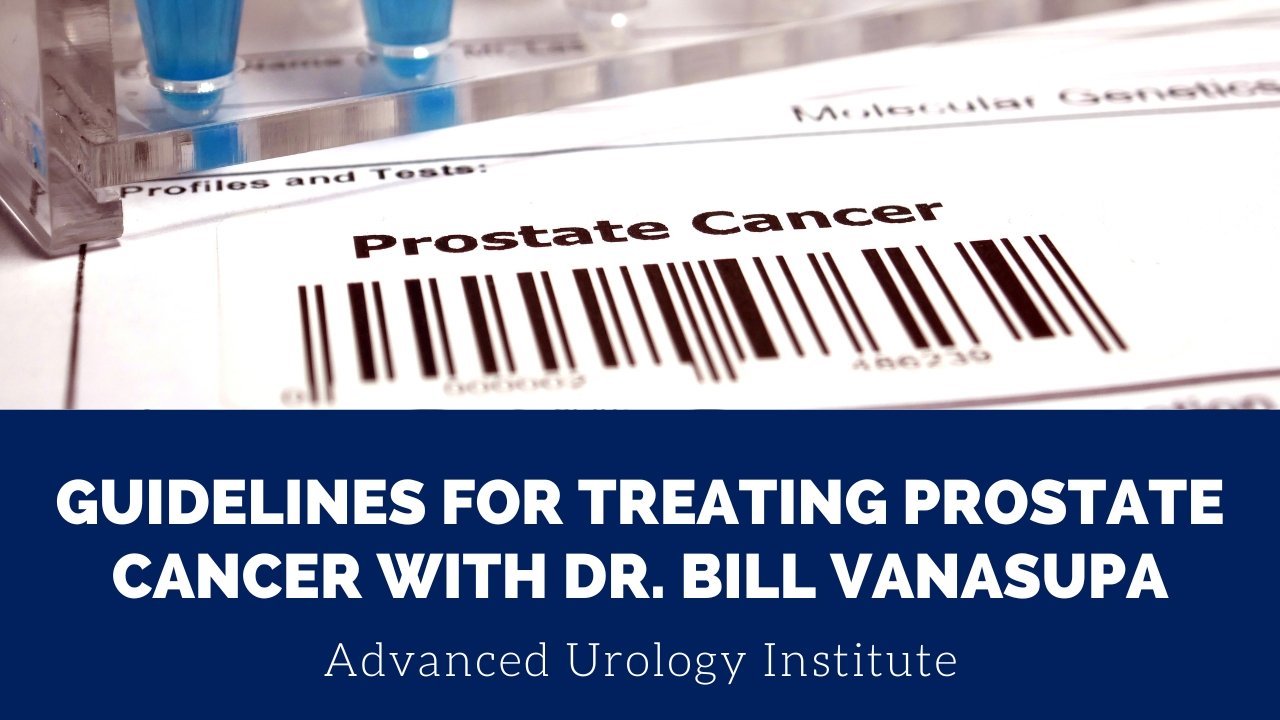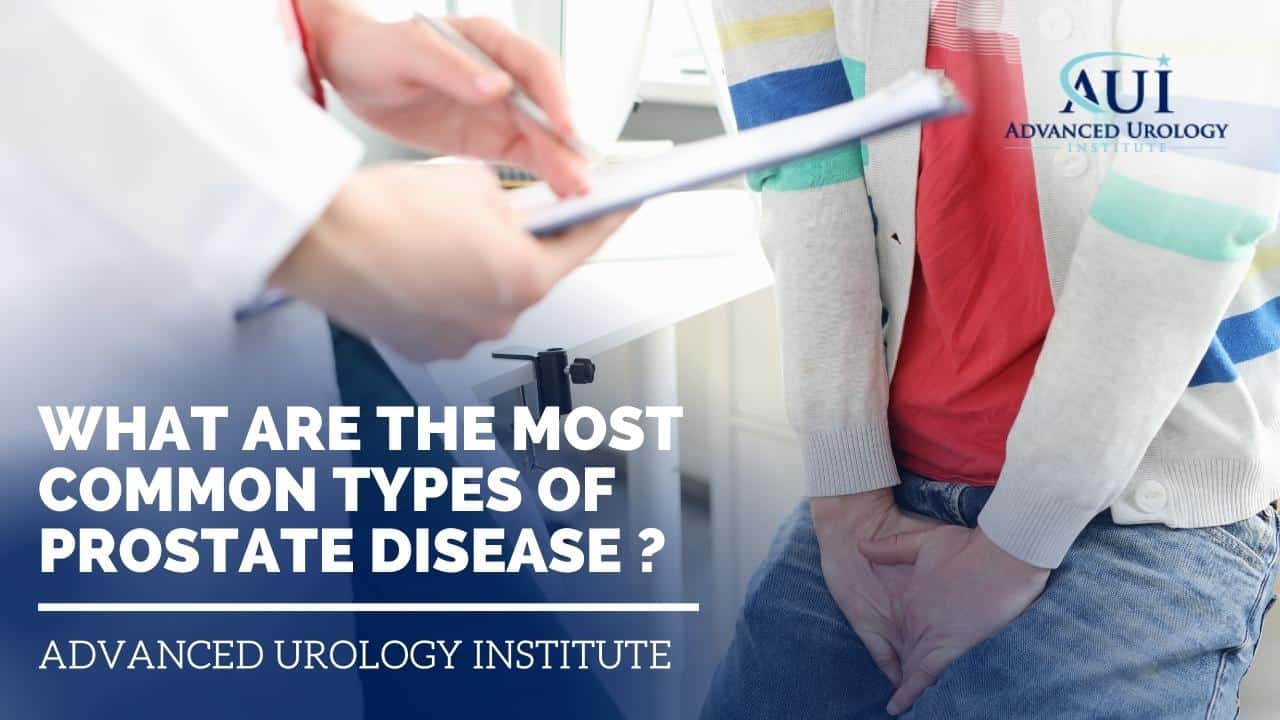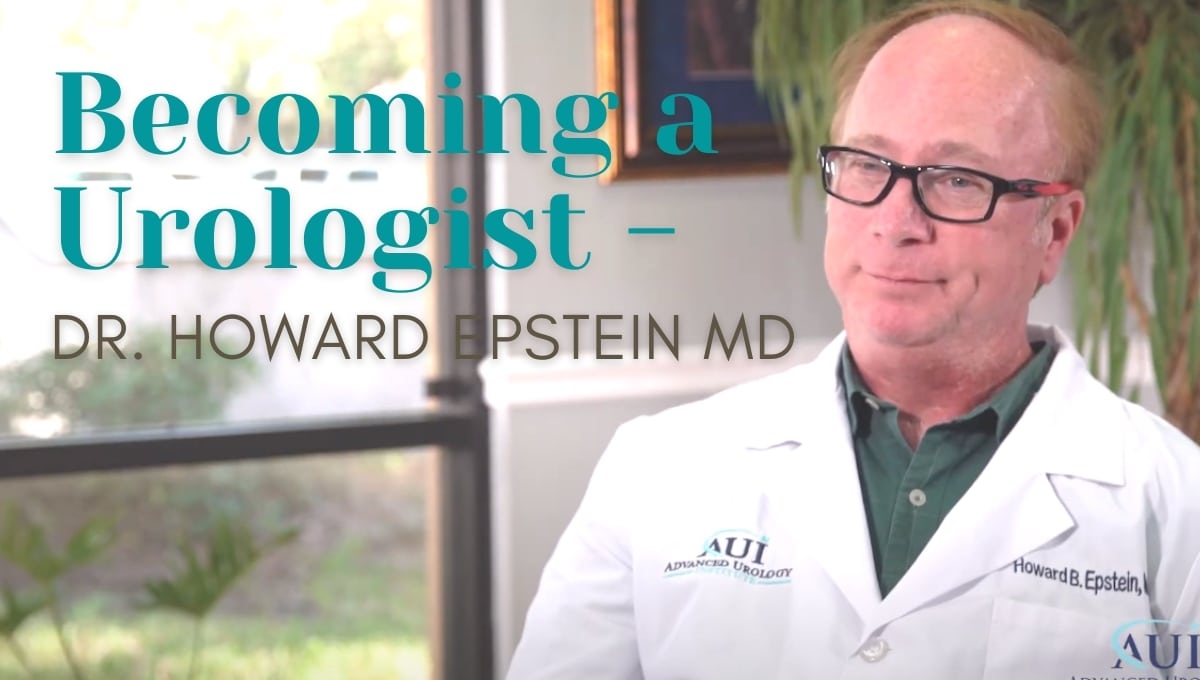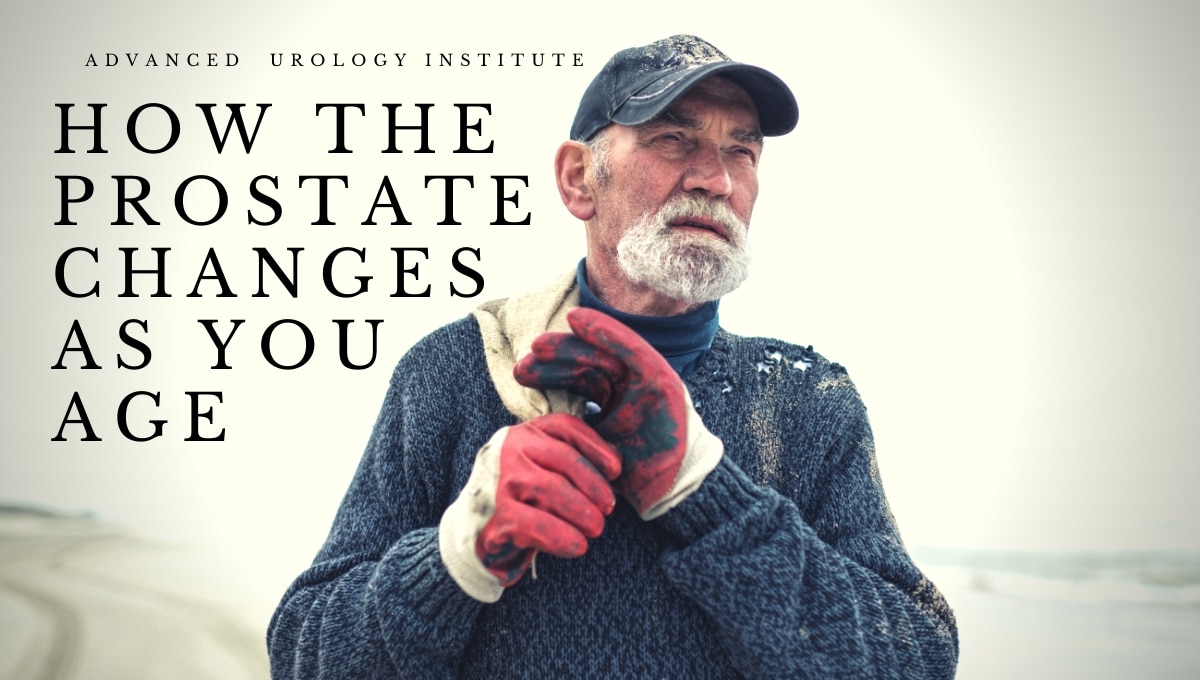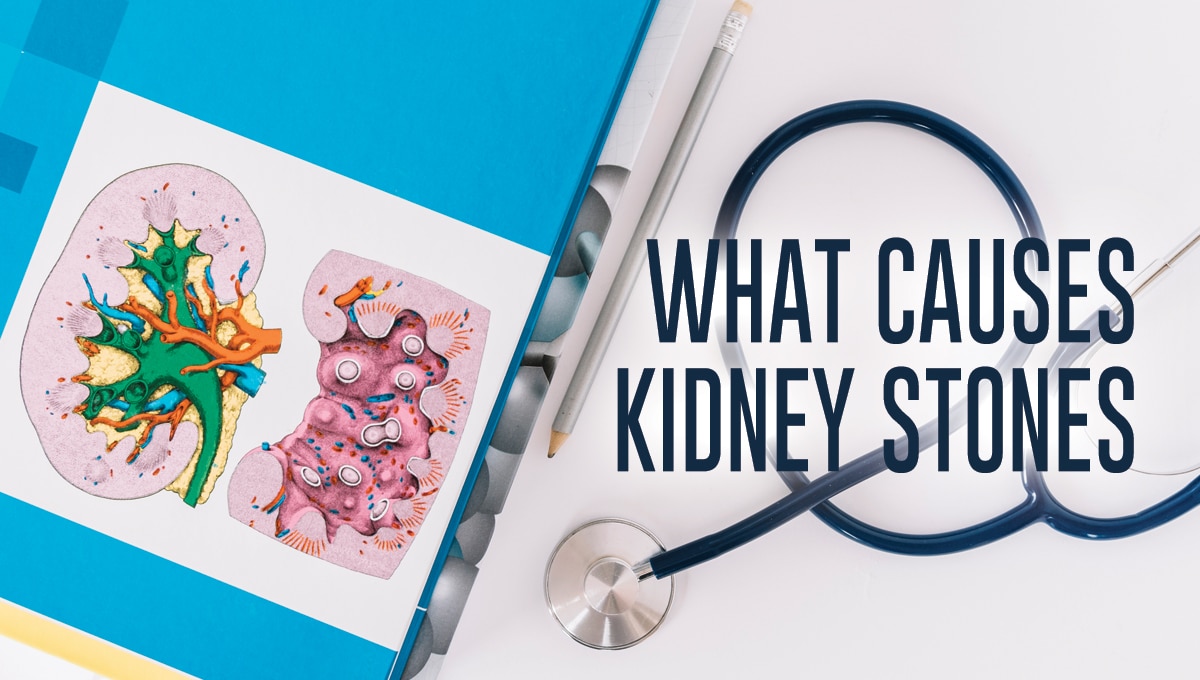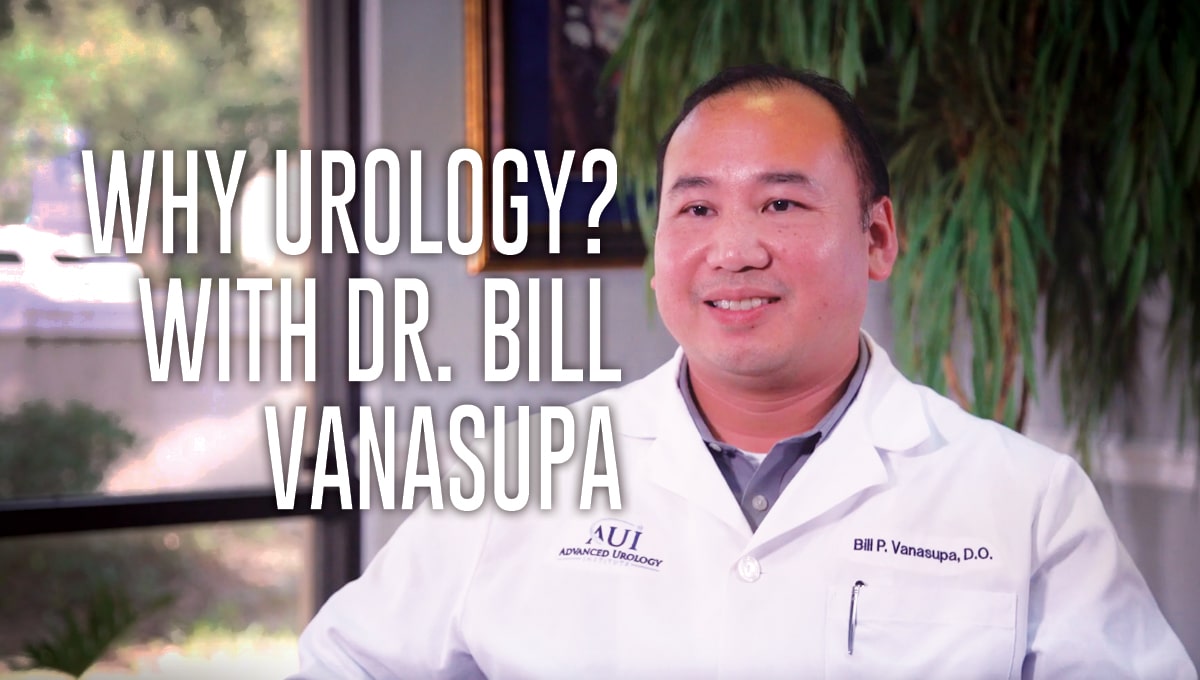In this video, Dr. Bill Vanasupa, a board-certified urologist, discusses the effectiveness of medications for treating erectile dysfunction (ED). He notes that not all patients respond to medications and that the level of response can vary based on factors such as comorbidities, heart issues, and diabetes.
Continue readingGuidelines for Treating Prostate Cancer with Dr. Bill Vanasupa
Dr. Billy Vanasupa talks about the importance of informed decision-making when it comes to prostate cancer treatment. While medical professionals can offer guidance and recommendations based on the latest research and guidelines, ultimately, the patient should have a say in their treatment plan.
Continue readingWhat are the most common types of prostate disease?
The prostate gland, simply called the prostate, is a small, walnut-sized gland found at the base of the bladder of the male reproductive system. The prostate produces an alkaline fluid that leaves the urethra during ejaculation and helps
Continue readingHow Do You Treat Kidney Stones
Treating kidney Stones depends on the degree of the pain the size of stone. Learn more from Dr. Billy Vanasupa of St Augustine, FL.
Continue readingBecoming a Urologist – Dr. Howard Epstein MD
Medical School
After completing the required subject courses, students take the Medical College Admission Test (MCAT) and complete medical school applications. Applicants then must pass face-to-face interviews with professors who are medical doctors and have just one question: “Would I want this person to be my doctor?”
Once admitted to medical school, the future urologist can look forward to a program that will last at least four years, including grueling residency requirements and more exams. Upon completing exams, the student is a doctor, but merely graduating from medical school does not make a urologist!
Urology Studies
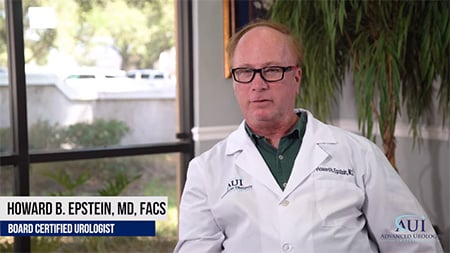 There is yet another exam called the American Board of Urology (ABU) Qualifying Examination, Part 1. Then the future urologist must complete five more years of schooling and residency practice. During this time, the new doctor must learn general surgery, surgical critical care, trauma, colorectal surgery, transplantation and plastic/reconstructive surgery. Also during this time, at least four years of clinical urology training are required. After all of that has been completed, the doctor must pass the ABU Certifying Exam (Part II) to become an ABU certified urologist.
There is yet another exam called the American Board of Urology (ABU) Qualifying Examination, Part 1. Then the future urologist must complete five more years of schooling and residency practice. During this time, the new doctor must learn general surgery, surgical critical care, trauma, colorectal surgery, transplantation and plastic/reconstructive surgery. Also during this time, at least four years of clinical urology training are required. After all of that has been completed, the doctor must pass the ABU Certifying Exam (Part II) to become an ABU certified urologist.
There are a few medical programs that can shorten this process of nine years of graduate school, but they are not accepted in every state.
Re-certification as a urologist must occur every ten years. To continue as a licensed medical doctor, one must do a certain amount of continuing education credits each year. The learning never ends.
Urologists must learn how to examine and treat a large number of different disorders. They work with all kinds of diseases and injuries related to the urinary tract. The urinary tract includes the kidneys, ureters, the adrenal glands, the related arteries and veins, the bladder and the urethra. Urology also includes the male reproductive system, which means urologists also treat issues concerning erectile dysfunction.
The urinary tract is one of the most important parts of the body. It regulates which chemicals, vitamins, minerals and gasses go to every part of the body. While the urinary tract does not regulate what goes into the body, it does regulate what comes out, at least as urine, and ensures that blood composition is just right.
Dr. Howard Epstein
Dr. Howard Epstein did not have a traditional course of undergraduate studies for medical school. His first university degrees were a dual-major in electrical engineering and business administration. From friends who were in medical school, he discovered that he was more interested in their work than in the fields for which he had degrees, so he went back to school.
Dr. Epstein has been practicing medicine since 1984. He is a board certified urologist with the American Board of Urology, a fellow of the American College of Surgeons and a member of the American Urological Association. He is also with the Florida Urologic Association. Serving as the chief of urology at the Gainesville Veteran Administration Medical Center increased his awareness of the unique needs of American veterans. He currently practices medicine at the Advanced Urology Institute’s two offices in St Augustine, Florida at the Southpark and Tuscan locations. To contact Dr. Epstein or for more information, visit the Advanced Urology Institute website.
Discussing a Sensitive Topic: Erectile Dysfunction
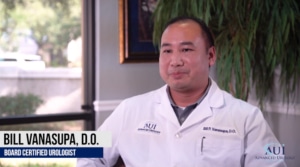 A urologist is a doctor who specializes in the urinary tract and male reproductive system. They are the doctor a patient will most likely to go to about his ED. Urologists see countless cases of ED on a regular basis, and to them it is not a major issue at all. However, good urologists understand that ED can be an embarrassing issue for their patients and they immediately begin their visits by creating a comfortable environment where doctor and patient feel at ease discussing it.
A urologist is a doctor who specializes in the urinary tract and male reproductive system. They are the doctor a patient will most likely to go to about his ED. Urologists see countless cases of ED on a regular basis, and to them it is not a major issue at all. However, good urologists understand that ED can be an embarrassing issue for their patients and they immediately begin their visits by creating a comfortable environment where doctor and patient feel at ease discussing it.
One such urologist who works to create a comfortable environment is Dr. Billy Vanasupa. When talking about his approach with patients who see him for ED, Dr. Vanasupa says, “I always try to make my visits light, make some jokes here and there, and make them feel comfortable.” His goal is to make his patients laugh so they are less nervous and feel they can easily talk to him. Dr. Vanasupa removes the stigma of ED so he and his patient can openly discuss this sensitive topic.
Once everyone is comfortable discussing the topic, the urologist will ask background questions like whether the ED occurred slowly or abruptly. The patient will be asked if he has tried any medications. The doctor’s questions are to help determine root causes for the issue and will include asking about diet, alcohol and drug use, and stress factors. Finding possible causes for ED is an important first step in treating it.
The urologist and patient will discuss best treatment options for ED. In many cases, oral medication, possibly along with some minor lifestyle adjustments, will fix the issue and allow healthy men to return to their normal sexual activity. For some men, oral medication does not help. The urologist may suggest injections. Patients will learn in the office how to administer a very low-pain injection at the base of the penis. There are very few cases where neither the oral or injected medication solves the issue.
Outcomes are best when the patient feels comfortable talking to his urologist about sensitive issues. The Advanced Urology Institute has urologists who can treat erectile dysfunction in a way that puts a patient at ease. For more information, visit the Advanced Urology Institute website.
How the Prostate Changes As You Age
The rate of growth is different for everyone. The prostate will grow faster in some men than in others. In some cases, the enlarging prostate can cause problems immediately for a man in his early 40s. In other cases, men may be in their 80s or 90s before they begin to see the effects of a growing prostate. Most commonly though, men in their late 50s and early 60s begin to experience urinary issues that begin slowly and increase in severity.
Some of the most common issues are the slowing of the urine stream, pushing to urinate, having to go back to the bathroom 10-15 minutes after urinating, feeling like the bladder may not be fully emptied, and having to get up frequently at night to go to the bathroom. All the symptoms can be associated with the frequent and sudden urge to use the bathroom.
These symptoms are a sign that it is time for a man to see his urologist. The symptoms will only increase in severity without treatment as the prostate continues to grow. The urologist will begin by helping a patient understand what is causing the issue, using a diagram to show where the prostate is and how it presses on the urethra as it grows. The enlarging prostate makes it difficult for urine to pass through the urethra on its way out of the body.
Treatment begins with medication to help with urination. These medicines help slow the growth of the prostate and relax the muscles around the bladder to make urination easier. A urologist also will do a PSA test to screen for prostate cancer. Not all cases of prostate enlargement are connected to cancer growth, but it is important to screen for the disease as a precaution.
Men’s bodies change in many ways as they age, and the prostate is no exception. Urologists at the Advanced Urology Institute focus on making sure their patients understand how their bodies are changing with age and how they can work with their urologist to stay in the best shape. For more information, visit the Advanced Urology Institute website.
What Causes Kidney Stones by Dr. Howard Epstein
What causes kidney stones? This is a question that Dr. Howard Epstein hears often when he meets patients suffering from the symptoms, pain and problems caused by this common urological condition.
It is important to first know what the kidneys are and what is their normal function. The kidneys are often described as fist-sized, bean-shaped organs. They are located below the ribs, behind the stomach. Their main function is to filter the blood and maintain the proper balance of necessary salt, water and various minerals in the blood. Excess salt and minerals and other wastes are removed and sent to the bladder as urine. The filtered blood is sent to the heart, where it can carry oxygen and necessary nutrition to the rest of the body. Because the kidneys essentially make sure the blood is clean and healthy, they are critical for life.
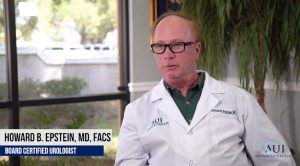 For a normal person, the kidneys will filter around 200 quarts of blood each day, and they will remove about two quarts of liquid each day in the form of urine. Since a healthy person of around 160 pounds has only five quarts of blood, that means the blood will flow through the kidneys around 40 times per day.
For a normal person, the kidneys will filter around 200 quarts of blood each day, and they will remove about two quarts of liquid each day in the form of urine. Since a healthy person of around 160 pounds has only five quarts of blood, that means the blood will flow through the kidneys around 40 times per day.
Of all the various ailments a person can have, kidney stones can be among the most painful. The stones are formed when the kidneys filter out an excessive amount of minerals, such as salt or calcium, and those minerals remain in the kidney long enough to start crystallization. It’s the same kind of process that can create rock candies. Over time, the crystals become larger, forming kidney stones. If they are small, they can often be flushed out (passed out) of the kidneys and the body without creating any problems. But if at any stage they get stuck in the body, they will continue to grow in that spot. The most common spot is in the kidneys, where they first start growing. As they grow, they hinder normal kidney function, reducing the flow of blood and reducing the kidney’s ability to produce and pass urine. A kidney stone can move and completely stop the flow of urine, which is really bad news.
If a person consumes too much salt, too many calcium-containing foods, takes certain medications or drinks far too little water, kidney stones can develop. There is evidence that genetics also can can cause stone-making kidney disorders. The end result can be very painful.
Drinking water every day is essential to good health. The citrate in lemon juice can be beneficial in small amounts. Artificially colored sodas and food, as well as too much coffee, can cause problems because of the types of chemicals that enter the body. The body also gets rid of excess water through perspiration, so it is important to drink enough water to urinate at least four times a day, with an average above that.
Anyone experiencing symptoms such as strong pains in the stomach area or on the side down to the groin should immediately see a doctor. There are numerous problems that can cause excessive side or abdominal pain and it is advisable to see a specialist. If you are concerned about the possibility of having kidney stones, schedule a consultation with Dr. Howard Epstein MD or one of the many highly skilled urologists at an Advanced Urology Institute location near you.
Why Urology? with Dr. Bill Vanasupa
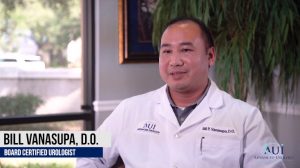 Dr. Bill Vanasupa thought he wanted to be a family practice doctor, seeing and growing with the same patients throughout his career. However, when he was an intern he discovered that although family practice is rewarding in its own way, it was not the right choice for him. When he assisted in surgery as part of his training, he discovered an aspect of medical care that he felt was his calling.
Dr. Bill Vanasupa thought he wanted to be a family practice doctor, seeing and growing with the same patients throughout his career. However, when he was an intern he discovered that although family practice is rewarding in its own way, it was not the right choice for him. When he assisted in surgery as part of his training, he discovered an aspect of medical care that he felt was his calling.
However, Dr. Vanasupa also knew about the challenges of practicing in certain fields of surgery, and he found himself considering where he could best serve patients with both surgical and non-surgical treatments.
As luck would have it, Dr. Vanasupa had a friend in college whose father was a urologist. He spoke to his friend’s father and a career in urology seemed like a good fit for him. Urology would allow him to create lifelong relationships with patients while also performing surgeries and keeping a desired work-life balance. By assisting patients with their urology problems, Dr. Vanasupa has the opportunity to create great patient relationships that last for years.
Today, Dr. Vanasupa is living his dream at Advanced Urology Intstitute by helping people by offering the most advanced medicine and surgical techniques available in the medical field of urology.



